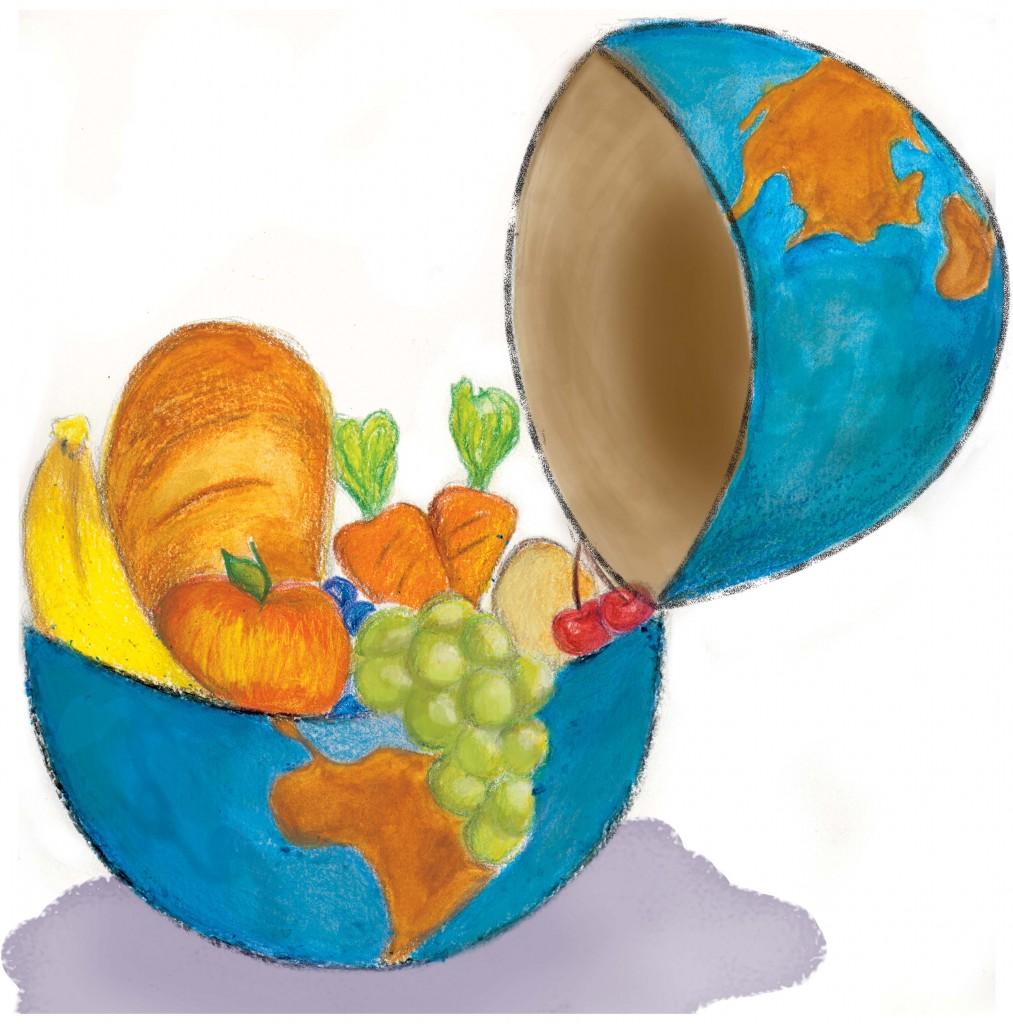Will the Coming American Eat Meat?
Statistics Show a Rising Trend in the Veg Movement
June 2, 2011
Published: April 3, 2008
A diet of meat and marrow gave primordial man the energy he needed to create today’s sophisticated societal system. Considering what that system has become, it’s obvious how we are now positioned to go vegan.
And many Americans seem to be taking the first step.

In a 2003 Vegetarian Resource Group Harris Interactive survey, 2.8 percent of Americans surveyed said they never eat any meat. Over half of those said they also never eat dairy products, eggs or honey. Of the 209 million people 18 and older in the U.S., that makes about 5.7 million adult vegetarians altogether, with roughly 2.5 million of them vegan. Today, in 2008, there are twice as many vegetarians, according to an article in Mother Jones, and the vegans have also upped their ante.
But what is most interesting about these surveys is not the increasing popularity of the veg movement. It is that the lower in age the population, the higher the percentage of non-meat eaters there were. Ten percent of 25-34 year olds currently indicate they never eat meat, and in 2003, 10 percent of 18-29 year olds gave the same answer. It seems in one specific age group, there has been a permanent change.
Several causes, immoral and moral, account for this. But predominantly it is the increased awareness among our generation—or what I call the heightened inclination to think—that has goaded us to make important lifestyle changes such as nixing meat. Unlike two decades ago, most people now know about the studies linking health problems to the consumption of animal products and are concerned with the ethical issues surrounding animal treatment in factory farms. We also take issue with the drain of resources for which industrial farming is responsible—an issue that doubles in pertinence for current environmental debates.
According to the statistics, the rising number of vegetarians seems to correspond directly with this widening public discourse, which speaks worlds for the importance of education in our future. But when it comes to food, human behavior is not purely reasonable. So while people may be more inclined now than ever before to think about what they’re eating, ordinary people are not health professionals, and the physical body makes certain demands.
While in a poll by Teenage Research Unlimited, 25 percent of adolescents said vegetarianism was “cool,” and the American Dietetic Association says it is possible to raise infants over the age of 2 as vegans, if menus are not carefully planned, meat will fall back onto the plate as people are naturally coaxed out of “coolness” by mineral deficiencies. In essence, if the future is to be less wasteful and sonorously herbivorous, it will require not only a continuation of the current public discourse but an absolute allegiance with realizing what humans actually need.
And what will that take? In order to give the body what it needs, individuals will be forced to slow down, to pay attention to themselves in a more organic way and to teach themselves about their desires without distraction. First and foremost, they will have to be willing to turn off the television (Who makes bad look good like the advertising industry?)
Something else to think about is this: we do not need to consume the flesh and milk of bovine in order to be healthy. The availability of non-meat products provides plenty of options for achieving nutritional needs. If we acknowledge that and take it seriously, thousands of pounds of resources that currently feed livestock could be saved. The whole American agricultural industry could be forced to change its ways, and we could learn to look at nature differently: instead of appropriating it, meeting it halfway.
Moreover, we must consider how our dependence on animals for food is just one of the myriad ways we contribute to our own servitude in the capitalist society. So long as we live in excess, we will live under the power of the high standard of servitude linked to our dependency on the exploitation of nature. Without the meat industry, we decrease the performances required to sustain the destructive tendencies of prosperity. Forgetting meat, we, like the animals, could roam free.
So will the coming American eat meat? If the past is any indication, the movement looks to be consistent. Of course, how far we go will depend on dedication. If we can continue to choose freedom over habit, will we learn to like soy cheese?









